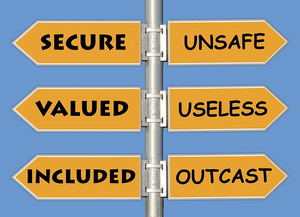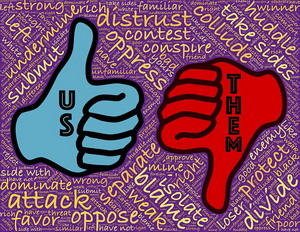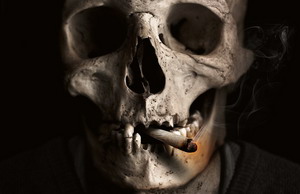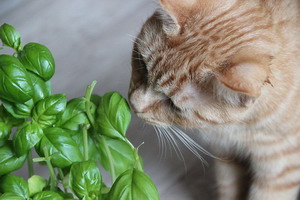There was an old story I read once that went like this: An old farmer was talking to his neighbor about how his son was on the roof a couple days ago repairing holes when he slipped and fell off the roof and broke his leg. The neighbor was very concerned for his friend. He said how terribly bad this accident was because now the farmer did not have his son to help him plant the fields and do the chores on the farm. The farmer simply said “Maybe, or maybe not. Time will tell.” A week later a regiment of soldiers came through the area conscripting all the young men to go off to fight in the war the king had started with the country to the south of them. When the soldiers came to the farmer’s house, they left the farmer’s son because of his broken leg. Naturally the broken leg healed up in time and the farmer had his son to help him on the farm. Now the neighbor was proclaiming how lucky the farmer was that his son had broken his leg, because now the farmer was the only one around that had any help. All the other young men in the area were gone to fight in the war.

The moral of this story was summed up by Shakespeare many centuries ago when he wrote: “There is nothing either good or bad, but thinking makes it so.” We love to make judgments about everything. We demand to have a position and a perspective about everything. It feels almost sinful to most of us to simply say “I don’t know.” When I ask folks why they need to have an opinion about things, the usual answer I get is “So I will know how to feel and what to do!” This makes sense I guess, but it suffers from binding you to your history. You form your opinion and perspective at some time in the past and then simply replay it in the present. It is as though feeling and coming up with a novel response based on all the factors present in this moment is too much effort. Replaying old feelings because the situation shares some similarity to an experience in the past appears to be preferable to folks, even though this is a new situation that has different factors attached to it.

Why am I ruminating on this subject? This is the spin off of an observation I heard expressed in a video about how to create change in our lives. The observation was that the greatest addiction we humans have is to the familiar. The rest of the video was full of good stuff, but it was this one idea that stuck with me. We are addicted to the familiar.
As this awareness rolled around in the back of my mind, the story of the farmer and the quote from Shakespeare came up. When I contemplate things, this is what I get – seemingly random associations and memories that when I hold them all together a bigger understanding results. The bigger understanding that congealed this time was that down deep what we really are saying when we judge something as bad or wrong is that it is unfamiliar while things that are good and right are solidly familiar. Thousands of years of philosophic discourse has gone on about the nature of what is good. But fundamentally everything just is. Something might be supportive of us in the moment, so we label it good. But that does not make it good for someone else, nor does it make it good for us in the future. None of us is able to see all sides of things nor are we able to see the future. Therefore the very best we can possibly do is say we like or dislike something here and now. None of us knows what tomorrow will bring. The farmer understood this in the story, hence his expression, “Time will tell.”

Good and bad, right and wrong have serious limitations. They are reflections of our limitations. Yet we run our lives based on our judgments of good and bad, right and wrong. Our interactions with others are often all about proclaiming what is good/bad right/wrong and trying to shame everyone around us into being good and right. In reality what we are really doing is trying to make everyone and everything simply be and act in a way that is familiar to us. It has nothing to do with good/bad or right/wrong and everything to do with making things comfortable to us by making it familiar.

This contemplation answered a question I have had for many years – why do over 90% of beaten abused women, once free, return to the same type of relationship over and over? The answer is – what is familiar is what feels right. Why do smokers who know smoking is bad for them keep returning to their habit? I have heard this over and over – it feels right. Clearly neither of these is in fact right. They are damaging to your health and will kill you. But these behaviors still feel right to these people. Plug any unhealthy behavior into this story and it takes you down the same path. How these unhealthy behaviors got started in the first place is a different story. But what keeps them going is to a large degree simply the comfort of doing what is familiar.
When did the unknown and unfamiliar become bad and wrong? The reality is that when facing the unknown we have just a good of a chance that the new will be better than our current situation as things being worse. The unknown can go either way. This is part of the basic risk management skills almost none of us are taught as children. Those who do get this from enlightened parents have a huge advantage in life. Learning how to participate successfully with the unknown is a very high level skill. A big part of that skill is learning to be comfortable with being uncomfortable. Learning to appreciate that you don’t know and being willing and able to be present with what is so you can respond to what is really there is super powerful.

If admitting we don’t know and being present is so good, then why don’t more people do it? The answer to this relates to how our reactive survival brain works. This is the oldest part of our brain, located in the brain stem. It is only concerned with one thing – what do we need to do to survive long enough to reproduce? It cares nothing about happiness, long term health, quality of life, connection to others, creativity, nothing – just survival long enough to pass down our genetic material. As such, it evaluates life based on what supplies food, water, shelter, safety, and an opportunity to replicate. Since your history has to have provided enough of that to allow you to be here in this moment, history is seen as a sure thing. The unknown is only a 50-50 proposition. The unknown contains the possibility that survival needs won’t be met, so it is considered an unacceptable risk. The known allowed us to survive to this point so it must be the best choice. The sure thing for survival feels comfortable to this part of our brain even though it might be terribly uncomfortable to the rest of us. This area is the core of our brain, so its choices run the show unconsciously.

So there we have it. To the oldest part of our brain, the familiar is always the best choice because it enabled us to survive to this point. Therefore the familiar is good and right and the unfamiliar is bad and wrong. This part of our brain passes these assessments up to the conscious mind/brain for us to concoct stories to justify our position. This is the thinking Shakespeare was referring to. The fact that these are simply made up stories is demonstrated by the fact that both parties in any argument believe they are right and good and the opposing party are the bad guys. If there was a “true right and good” this could not happen.

How do we fight this insanity? Strangely the development of the scientific method was one way humans fought back against the rule of the survival brain. Curiosity and trial and error give us the method to probe the unknown to find the beneficial parts of the unknown. We have the ability to postulate and theorize outcomes to give us the courage to try something different. Tiny steps with small consequences make it relatively safe to explore the unknown. Other times our history collides with non-survival and we are forced to try something different. Life pushes us to grow and expand. Yes, it is uncomfortable. Growing up requires us to become comfortable with being uncomfortable.
Take care,
David
